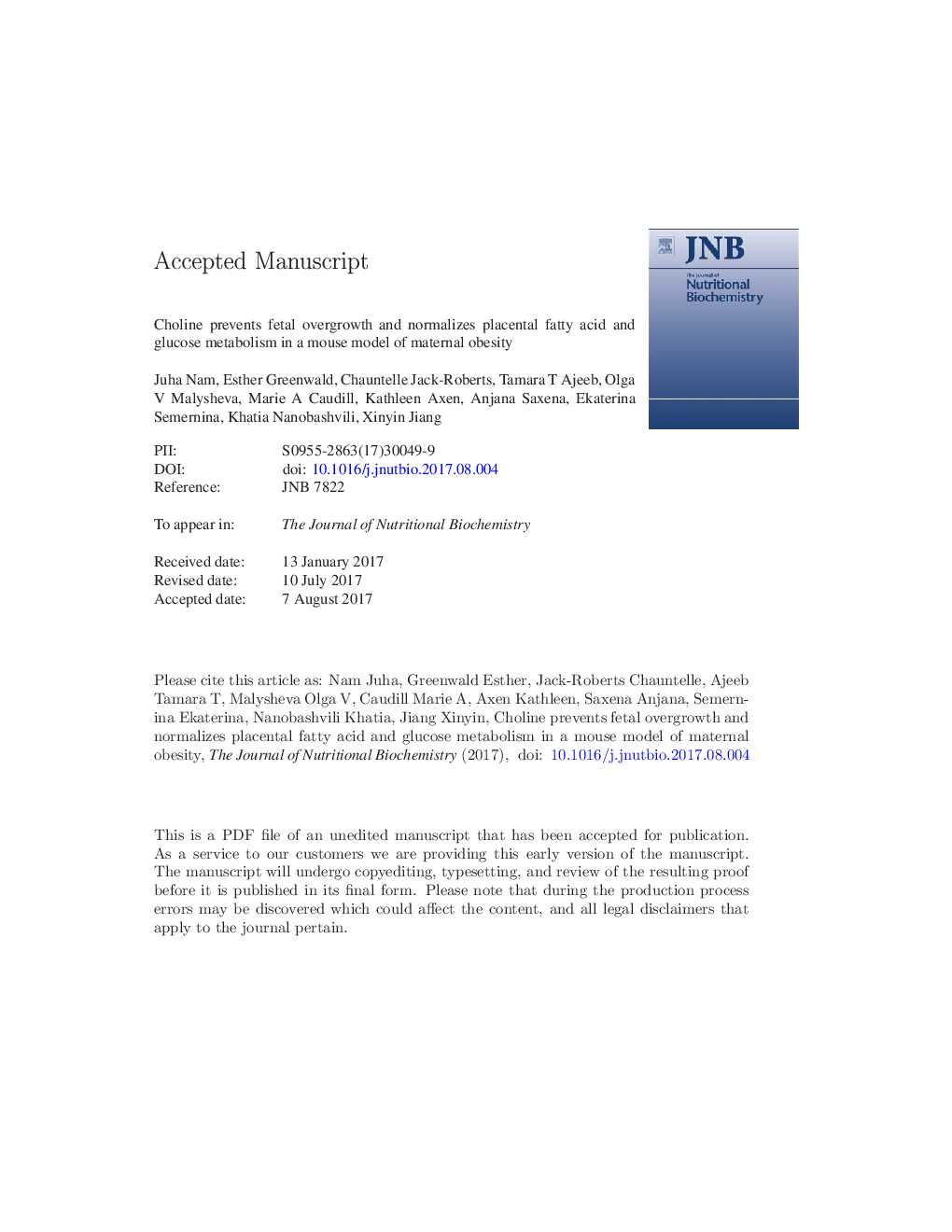| Article ID | Journal | Published Year | Pages | File Type |
|---|---|---|---|---|
| 5512805 | The Journal of Nutritional Biochemistry | 2017 | 44 Pages |
Abstract
Maternal obesity increases placental transport of macronutrients, resulting in fetal overgrowth and obesity later in life. Choline participates in fatty acid metabolism, serves as a methyl donor and influences growth signaling, which may modify placental macronutrient homeostasis and affect fetal growth. Using a mouse model of maternal obesity, we assessed the effect of maternal choline supplementation on preventing fetal overgrowth and restoring placental macronutrient homeostasis. C57BL/6J mice were fed either a high-fat (HF, 60% kcal from fat) diet or a normal (NF, 10% kcal from fat) diet with a drinking supply of either 25 mM choline chloride or control purified water, respectively, beginning 4 weeks prior to mating until gestational day 12.5. Fetal and placental weight, metabolites and gene expression were measured. HF feeding significantly (P<.05) increased placental and fetal weight in the HF-control (HFCO) versus NF-control (NFCO) animals, whereas the HF choline-supplemented (HFCS) group effectively normalized placental and fetal weight to the levels of the NFCO group. Compared to HFCO, the HFCS group had lower (P<.05) glucose transporter 1 and fatty acid transport protein 1 expression as well as lower accumulation of glycogen in the placenta. The HFCS group also had lower (P<.05) placental 4E-binding protein 1 and ribosomal protein s6 phosphorylation, which are indicators of mechanistic target of rapamycin complex 1 activation favoring macronutrient anabolism. In summary, our results suggest that maternal choline supplementation prevented fetal overgrowth in obese mice at midgestation and improved biomarkers of placental macronutrient homeostasis.
Keywords
CD36LPLNEFAGDM4E-BP1GLUTACOX1carnitine palmitoyltransferase 1bCpt1bPPAR-αPI3KIGFFATPmTORperoxisome proliferator-activated receptor alphaAktnon-esterified fatty acidsfatty acid translocasePlacentaNutrient transportGlucose transporterGestational diabetes mellitusGestational diabetesembryonic dayInsulin-like growth factorphosphoinositide 3-kinaseLipoprotein lipaseObesityMechanistic target of rapamycinRibosomal protein S6Fatty acid transport proteinprotein kinase Bhigh-fatCholine
Related Topics
Life Sciences
Biochemistry, Genetics and Molecular Biology
Biochemistry
Authors
Juha Nam, Esther Greenwald, Chauntelle Jack-Roberts, Tamara T. Ajeeb, Olga V. Malysheva, Marie A. Caudill, Kathleen Axen, Anjana Saxena, Ekaterina Semernina, Khatia Nanobashvili, Xinyin Jiang,
